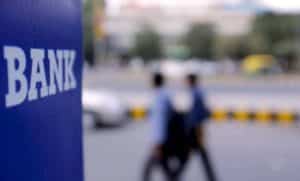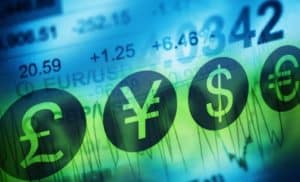Table of Contents
Union Finance Minister Nirmala Sitharaman poses for a picture with European Central Bank President Christine Lagarde and Reserve Bank of India Governor Shaktikanta Das prior to the commencement of the 2nd session of the G20 Finance Ministers and Central Bank Governors meeting in Marrakech on Friday, Oct. 13, 2023.
The conflict in Israel and Palestine will not dampen plans for the India-Middle East-Europe Economic Corridor (IMEC), Finance Minister Nirmala Sitharaman signalled on Friday, noting that the strife didn’t figure significantly in parleys held with G20 Finance ministers in Marrakech, Morocco.
However, the West Asian crisis has brought concerns about fuel, food security, and supply chains to the forefront again, Ms. Sitharaman said in a briefing after the last meeting under India’s presidency of the G20 Finance Ministers and Central Bank Governors (FMCBG) held in Marrakech on October 12 and 13.
Significance of the India-Middle East-Europe Economic Corridor (IMEC)
The India-Middle East-Europe Economic Corridor (IMEC) holds immense significance as a strategic economic project. It aims to promote trade, investment, and connectivity between India, the Middle East, and Europe. IMEC is seen as a counter to China’s ambitious Belt and Road Initiative and seeks to enhance India’s engagement with these regions to boost economic growth and cooperation.
Features of the India-Middle East-Europe Economic Corridor (IMEC)
The key features of IMEC include:
- Enhancing trade and investment ties between India, the Middle East, and Europe.
- Promoting infrastructure development and connectivity through road, rail, sea, and air routes.
- Facilitating the movement of goods, services, and people between the participating countries.
- Encouraging collaboration in sectors such as energy, agriculture, tourism, technology, and finance.
Objectives of the India-Middle East-Europe Economic Corridor (IMEC)
The main objectives of IMEC are:
- To strengthen economic cooperation and partnerships between India, the Middle East, and Europe.
- To create new opportunities for trade and investment in the region.
- To enhance connectivity and infrastructure development to facilitate smoother movement of goods and services.
- To promote cultural exchange and people-to-people ties.
Effects of the West Asian Crisis on IMEC
The West Asian crisis, particularly the conflict in Israel and Palestine, has brought concerns about fuel, food security, and supply chains to the forefront. While the crisis has not significantly affected the discussions regarding IMEC, it highlights the need for addressing these concerns to ensure the smooth functioning of the economic corridor. Instability in the region can impact the flow of goods, increase inflationary pressures, and disrupt supply chains.
Pros and Cons of the India-Middle East-Europe Economic Corridor (IMEC)
Pros:
- Enhanced trade and investment opportunities for participating countries.
- Increased connectivity and infrastructure development.
- Strengthened economic cooperation and partnerships.
- Promotion of cultural exchange and people-to-people ties.
Cons:
- Potential geopolitical challenges and conflicts affecting the smooth functioning of IMEC.
- Risk of overdependence on certain countries or regions.
- Environmental concerns related to increased economic activities and infrastructure development.
Fun Fact
The India-Middle East-Europe Economic Corridor (IMEC) is part of India’s broader approach towards engaging with regional and global partners to foster economic growth and connectivity. It reflects India’s aspiration to play a significant role in shaping the global economic landscape and promoting inclusive development.
Mutiple Choice Questions
1. According to the information provided, where did the G20 Finance Ministers and Central Bank Governors meeting take place?
a) India
b) Marrakech, Morocco
c) Palestine
d) Middle East-Europe Economic Corridor
Explanation: The G20 Finance Ministers and Central Bank Governors meeting took place in Marrakech, Morocco. This is mentioned in the article as the location where the last meeting was held under India’s presidency of the G20 Finance Ministers and Central Bank Governors.
2. What concerns were brought to the forefront by the West Asian crisis?
a) Investment flows in emerging markets
b) Food security and supply chains
c) High interest rates
d) All of the above
Explanation: The West Asian crisis brought concerns about fuel, food security, and supply chains to the forefront again, as mentioned in the article. Therefore, the correct answer is d) All of the above.
3. When will data exchanges between countries under the Crypto Asset Reporting Framework (CARF) begin?
a) 2023
b) 2025
c) 2027
d) 2030
Explanation: According to the information provided, data exchanges between countries under the Crypto Asset Reporting Framework (CARF) will begin by 2027.
4. What is the purpose of the India-Middle East-Europe Economic Corridor (IMEC)?
a) To solve the conflict in Israel and Palestine
b) To address concerns about fuel, food security, and supply chains
c) To counter China’s Belt and Road Initiative
d) To promote international tax transparency
Explanation: The purpose of the India-Middle East-Europe Economic Corridor (IMEC) is to counter China’s Belt and Road Initiative, as mentioned in the article. Therefore, the correct answer is c) To counter China’s Belt and Road Initiative.
Brief Summary | UPSC – IAS
Finance Minister Nirmala Sitharaman has stated that the conflict in Israel and Palestine will not hinder plans for the India-Middle East-Europe Economic Corridor (IMEC). The issue was not a significant topic of discussion during the G20 Finance Ministers meeting in Marrakech, Morocco. However, the crisis has raised concerns about fuel, food security, and supply chains. Sitharaman also mentioned that emerging markets, despite potential impact from “higher for longer” interest rates, should not be deterred from receiving investment flows. On the topic of crypto assets, the G20 members adopted a roadmap for implementation, including data exchanges between countries under the Crypto Asset Reporting Framework by 2027.

